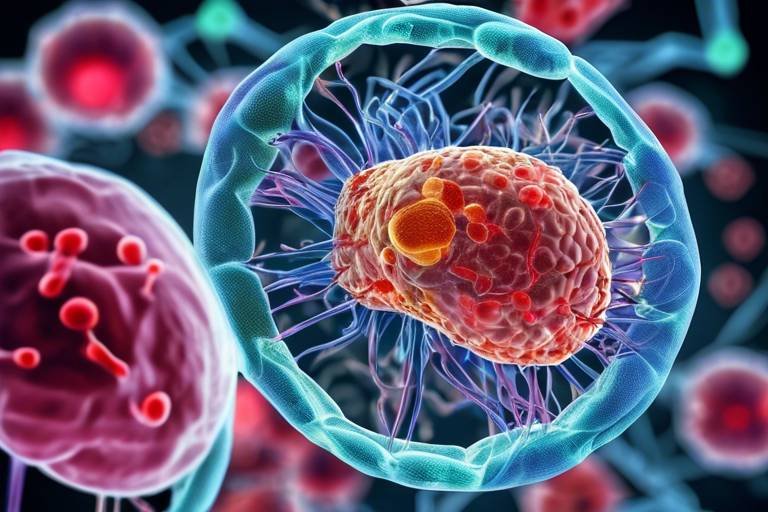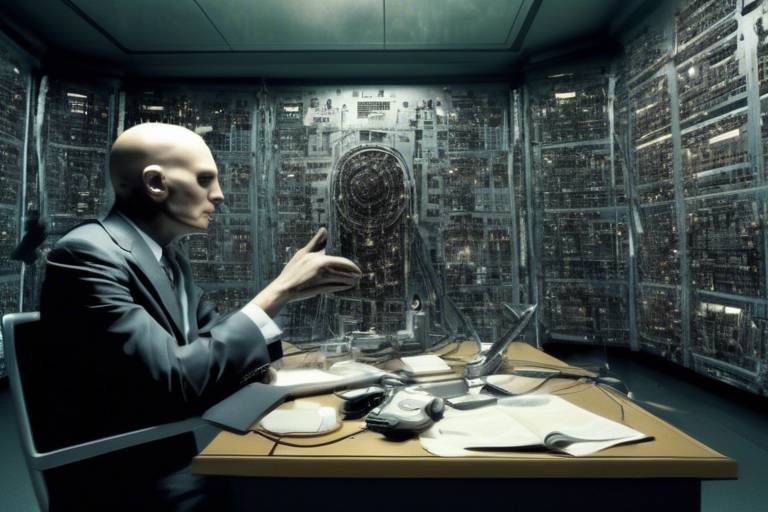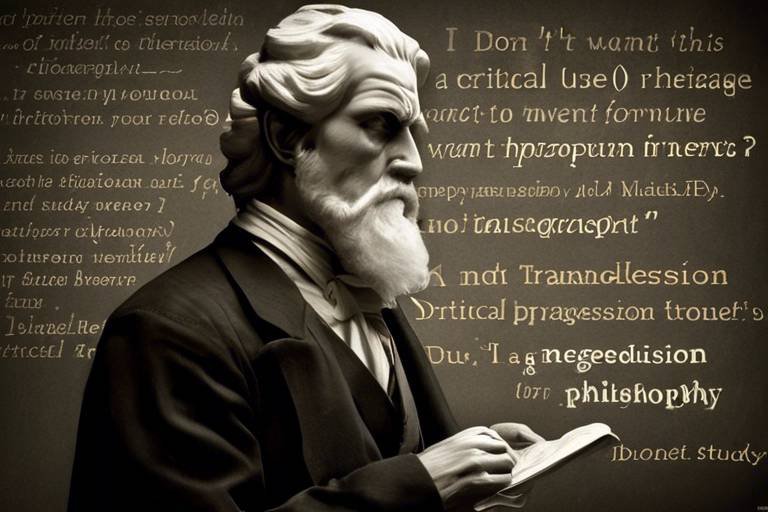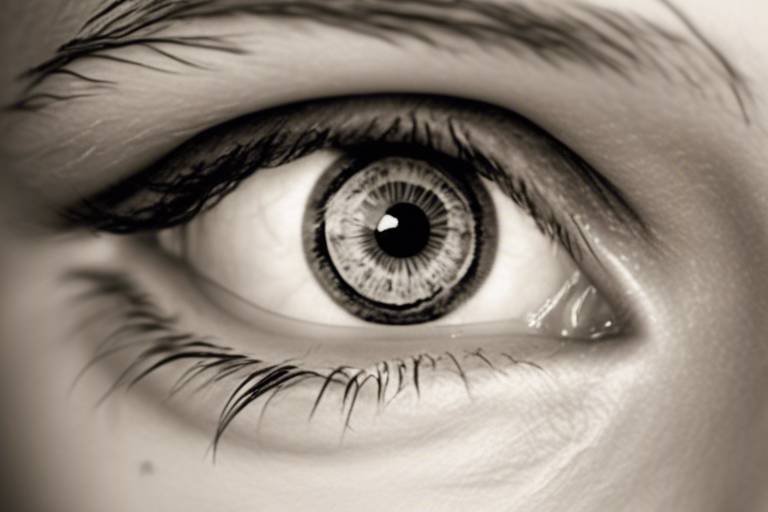The Ethics of Stem Cell Research – A Philosophical Analysis
Stem cell research has emerged as one of the most controversial and fascinating topics in modern science. It sits at the intersection of biology, ethics, and philosophy, raising profound questions about what it means to be human and the value we place on life. As we delve into this complex arena, we must confront the ethical implications that arise from manipulating the very building blocks of life. This article seeks to unpack these dilemmas, examining various philosophical perspectives that shape our understanding of stem cell research.
To truly grasp the ethical debates surrounding stem cell research, we first need to understand its historical context. Stem cells were first discovered in the late 20th century, and since then, the field has seen remarkable advancements. From the isolation of embryonic stem cells in 1998 to the development of induced pluripotent stem cells (iPSCs) in 2006, each milestone has sparked public interest and ethical scrutiny. Societal reactions have varied widely, often influenced by cultural, religious, and personal beliefs. For instance, while some view stem cell research as a beacon of hope for curing diseases, others see it as a violation of moral principles. This dichotomy has shaped the current ethical landscape, making it imperative to analyze the philosophical underpinnings of these views.
When discussing the ethics of stem cell research, several key ethical theories come into play. These theories provide frameworks for understanding the moral implications of scientific advancements. Utilitarianism and deontology are two prominent theories that often clash in this context, leading to intense debates.
Utilitarianism is a consequentialist theory that advocates for actions that maximize overall happiness. In the realm of stem cell research, this perspective raises critical questions: Does the potential to save lives and alleviate suffering justify the means of obtaining stem cells? Proponents argue that the benefits—such as curing debilitating diseases or advancing medical knowledge—far outweigh the ethical costs. However, this view is not without its critics, as it can lead to a slippery slope where the ends justify the means, potentially undermining moral standards.
In contrast, deontological ethics focuses on adherence to moral rules and duties. This perspective challenges the utilitarian justification of stem cell research by emphasizing the sanctity of human life. Deontologists argue that regardless of the potential benefits, the act of destroying embryos for research purposes is inherently wrong. This belief raises important questions about the moral status of embryos and whether they should be afforded the same rights as fully developed humans. The tension between these two ethical frameworks highlights the complexity of the debate surrounding stem cell research.
Another important perspective is virtue ethics, which emphasizes the character and moral virtues of the individuals involved in research. From this viewpoint, the qualities that researchers embody—such as compassion, integrity, and respect for life—play a crucial role in shaping the ethical landscape. Advocates of virtue ethics argue that researchers must navigate their moral responsibilities with care, ensuring that their work aligns with the broader values of society. This perspective encourages a more holistic approach to ethics, focusing not just on the actions taken but on the intentions and character of those making decisions.
One of the most significant ethical concerns in stem cell research revolves around the concept of human dignity. Many argue that the destruction of embryos for research purposes undermines the inherent value of human life. This raises essential questions about the moral status of embryos and the implications of treating them as mere tools for scientific advancement. The debate often hinges on differing beliefs about when life begins and the rights of embryos, making it a deeply personal and contentious issue.
Public perception plays a critical role in shaping the ethical landscape of stem cell research. As societal values and beliefs evolve, so too do the discussions surrounding the morality of this scientific practice. Understanding public opinion helps illuminate the complexities of the ethical dilemmas faced by researchers and policymakers alike.
Cultural beliefs significantly influence attitudes toward stem cell research. Different cultures approach the ethical dilemmas posed by this field of study in unique ways, often shaped by historical, social, and religious contexts. For instance, in some cultures, the emphasis on community well-being may lead to a more accepting stance on stem cell research, while others may prioritize individual rights and moral principles, resulting in a more cautious approach.
Religious viewpoints often shape ethical stances on stem cell research. Various faiths contribute to the ongoing debate regarding the moral implications of this scientific practice. For example, many religious groups argue that life begins at conception, thereby opposing any research that involves the destruction of embryos. Conversely, some religious perspectives may support stem cell research if it aligns with the belief in alleviating human suffering. This divergence in beliefs underscores the need for ongoing dialogue and understanding among different faith communities.
- What are stem cells? Stem cells are undifferentiated cells that have the potential to develop into various cell types in the body.
- Why is stem cell research controversial? The controversy largely stems from ethical concerns regarding the use of human embryos in research.
- What are the potential benefits of stem cell research? Potential benefits include advancements in regenerative medicine, treatments for chronic diseases, and improved understanding of developmental biology.
- How do different cultures view stem cell research? Cultural perspectives vary widely, with some cultures embracing the research for its potential benefits, while others oppose it based on ethical beliefs.

The Historical Context of Stem Cell Research
Understanding the evolution of stem cell research is crucial for grasping the ethical debates surrounding it today. The journey of stem cell research began in the early 20th century when scientists first identified the unique properties of these remarkable cells. In the 1960s, the groundbreaking work of researchers like James Thomson and others led to the isolation of stem cells from mice, marking a significant milestone in the field. This discovery opened up a world of possibilities, igniting a fierce interest in the potential applications of stem cells in medicine.
Fast forward to the late 1990s, when the first human embryonic stem cells were successfully derived. This breakthrough was met with both excitement and controversy, as it raised profound ethical questions about the source of these cells. The embryos used for research were often leftover from in vitro fertilization procedures, leading to heated debates about the moral status of embryos. As society grappled with these questions, various regulations and policies began to emerge, reflecting the diverse perspectives on the issue.
Throughout the early 2000s, the political landscape surrounding stem cell research fluctuated dramatically, particularly in the United States. President George W. Bush's administration imposed strict limitations on federal funding for embryonic stem cell research, which sparked a national dialogue about the ethical implications of scientific progress versus moral considerations. This tension between scientific advancement and ethical concerns continues to shape the discourse today.
In other parts of the world, such as Europe and Asia, countries adopted different approaches to stem cell research. Some nations embraced more liberal policies, allowing for extensive research and funding, while others imposed strict regulations. This global disparity has led to a patchwork of ethical standards and practices, complicating international collaboration in this vital field.
To further illustrate the historical context, the following table summarizes key milestones in stem cell research:
| Year | Milestone |
|---|---|
| 1960s | Isolation of stem cells from mice |
| 1998 | First human embryonic stem cells derived |
| 2001 | Federal funding restrictions imposed in the U.S. |
| 2006 | Discovery of induced pluripotent stem cells (iPSCs) |
| 2012 | Nobel Prize awarded for iPSC research |
As we can see, the history of stem cell research is not just a timeline of scientific achievements; it is also a reflection of our cultural values, ethical beliefs, and the ongoing struggle to balance innovation with moral responsibility. Understanding this context is essential as we navigate the complex ethical landscape of stem cell research today.

When diving into the murky waters of stem cell research, it's essential to anchor our understanding in key ethical theories that illuminate the moral landscape. These theories not only help frame the conversation but also guide us in assessing the implications of scientific advancements on human life. Among the most influential ethical frameworks are utilitarianism, deontology, and virtue ethics. Each of these perspectives offers a unique lens through which we can evaluate the ethical dilemmas posed by stem cell research.
At the heart of utilitarianism lies the principle of the greatest good for the greatest number. This ethical theory, championed by philosophers like Jeremy Bentham and John Stuart Mill, posits that the morality of an action is determined by its outcomes. In the context of stem cell research, utilitarianism prompts us to weigh the potential benefits against the ethical costs. For instance, the promise of curing debilitating diseases and improving the quality of life for many could be seen as a compelling justification for pursuing stem cell research. However, this perspective also raises critical questions: Does the potential to save lives outweigh the moral implications of using embryonic stem cells? What happens when the needs of a few outweigh the rights of the many?
In stark contrast to utilitarianism, deontological ethics emphasizes the importance of duty and moral rules. Pioneered by Immanuel Kant, this perspective argues that certain actions are inherently right or wrong, regardless of their consequences. When applied to stem cell research, deontology challenges researchers to consider their moral obligations. For example, if one believes that human life begins at conception, then using embryos for research could be seen as a violation of ethical duty. This raises a fundamental question: Should the potential benefits of scientific advancement take precedence over the moral obligation to protect human life?
Another important perspective is virtue ethics, which focuses on the character and virtues of the individuals involved in the research. Rooted in the teachings of Aristotle, this approach encourages researchers to embody qualities such as compassion, integrity, and responsibility. Rather than simply evaluating the actions taken or their outcomes, virtue ethics prompts us to consider the motivations behind those actions. In the realm of stem cell research, this means reflecting on the intentions of scientists and policymakers. Are they driven by a genuine desire to alleviate suffering, or are they motivated by ambition and the pursuit of knowledge at any cost?
As we navigate these ethical theories, it's crucial to remember that they do not exist in isolation. They often intersect and influence one another, creating a complex web of moral considerations. For instance, a utilitarian might argue that the ends justify the means, while a deontologist might counter that the means must adhere to ethical standards, regardless of the outcomes. Thus, understanding these philosophical underpinnings is vital for engaging in informed discussions about the ethics of stem cell research.
Ultimately, the debate surrounding stem cell research is not merely an academic exercise; it has real-world implications that affect countless lives. As we grapple with these ethical dilemmas, it's essential to foster open dialogue and consider diverse perspectives. By doing so, we can navigate the intricate moral landscape of stem cell research while striving to uphold the values that define our humanity.
- What are the main ethical concerns surrounding stem cell research? The primary concerns include the moral status of embryos, the potential for exploitation, and the implications for human dignity.
- How do different ethical theories approach stem cell research? Utilitarianism focuses on the outcomes, deontology emphasizes moral duties, and virtue ethics considers the character of those involved in the research.
- Can stem cell research lead to significant medical advancements? Yes, stem cell research has the potential to lead to breakthroughs in treating various diseases and conditions, but it also raises ethical questions that must be addressed.

Utilitarianism, a philosophy that champions the idea of achieving the greatest good for the greatest number, plays a pivotal role in the ethical discussions surrounding stem cell research. At its core, utilitarianism asks us to weigh the potential benefits of scientific advancements against the moral costs associated with them. When we think about stem cell research, we are confronted with a profound question: can the potential to save lives and alleviate suffering justify the ethical dilemmas posed by the use of human embryos? This is where the rubber meets the road, and the debate becomes both intricate and compelling.
Supporters of stem cell research often argue from a utilitarian standpoint, emphasizing the potential benefits that could arise from breakthroughs in regenerative medicine. Imagine a world where degenerative diseases like Parkinson's or Alzheimer's could be treated effectively, or where spinal cord injuries could be repaired, restoring mobility to those who have suffered. The promise of stem cell research is tantalizing, and for many, the possibility of alleviating human suffering outweighs the ethical concerns related to embryo use. The potential to save countless lives can be seen as a moral imperative, a duty to pursue knowledge that could lead to significant advancements in healthcare.
However, the utilitarian perspective is not without its critics. Opponents argue that focusing solely on the outcomes can lead to justifying morally questionable actions. For instance, if the ends justify the means, what safeguards are in place to protect the dignity of human life? This concern is particularly relevant when considering that embryos used in research are often viewed as potential human beings. The ethical costs, in this case, may include the commodification of human life and the slippery slope it creates in our moral landscape. As we delve deeper into this debate, we must ask ourselves: at what point do we draw the line between the potential good and the ethical implications of our actions?
Moreover, the utilitarian calculus can become complex when considering the diverse perspectives within society. Different groups may assign different values to the potential benefits of stem cell research. For example, a cancer patient may view the promise of stem cell therapy as a beacon of hope, while a religious individual may perceive the destruction of embryos as a moral transgression. This divergence in values complicates the utilitarian argument, as the "greatest good" can vary significantly from one person to another. Thus, while utilitarianism provides a framework for evaluating the ethical implications of stem cell research, it also highlights the necessity of incorporating a broader dialogue that considers multiple viewpoints.
In summary, the utilitarian perspective on stem cell research is a double-edged sword. It champions the potential for significant advancements in medicine while simultaneously raising profound ethical questions about the value and dignity of human life. As we navigate this complex terrain, it becomes essential to engage in open discussions that encompass not only the scientific possibilities but also the moral responsibilities that accompany them. Ultimately, the challenge lies in finding a balance that respects both the potential benefits and the ethical considerations inherent in this groundbreaking field of research.
- What is utilitarianism? Utilitarianism is an ethical theory that suggests that the best action is the one that maximizes overall happiness or well-being.
- How does utilitarianism apply to stem cell research? It evaluates the potential benefits of stem cell research, such as curing diseases, against the ethical concerns regarding the use of human embryos.
- What are some criticisms of the utilitarian approach? Critics argue that it can justify morally questionable actions if the outcomes are deemed beneficial, potentially undermining the dignity of human life.
- Are there alternative ethical perspectives on stem cell research? Yes, other ethical theories like deontology and virtue ethics offer different frameworks for evaluating the moral implications of stem cell research.

When we dive into the realm of deontological ethics, we encounter a framework that prioritizes the principles of duty and moral obligation over the consequences of actions. Unlike utilitarianism, which weighs the outcomes to determine the rightness of an action, deontological ethics insists that certain actions are inherently right or wrong, regardless of their outcomes. This rigid adherence to moral rules significantly influences the debate surrounding stem cell research, raising critical questions about the ethical implications of manipulating human life at its earliest stages.
One of the core tenets of deontological ethics is the categorical imperative, a concept introduced by philosopher Immanuel Kant. This principle suggests that individuals should act according to maxims that can be universalized; in simpler terms, if an action cannot be universally accepted as a moral standard, it should not be performed. In the context of stem cell research, this raises profound questions: Can the destruction of embryos, often necessary for obtaining stem cells, be justified if it leads to potential medical breakthroughs? For many deontologists, the answer is a resounding no. The act of destroying what they consider potential human life is seen as a violation of moral duty, irrespective of the potential benefits that may arise.
Moreover, deontological ethics emphasizes respect for persons, which entails recognizing the inherent dignity of every individual. This perspective poses a significant challenge to stem cell research, particularly when considering the status of embryos. Many deontologists argue that embryos should be afforded the same moral consideration as fully developed humans. Consequently, the act of utilizing embryos for research purposes can be viewed as a failure to uphold the moral obligation to respect human life. This viewpoint often leads to heated debates among ethicists, scientists, and policymakers, as they grapple with the implications of treating embryos as mere tools for scientific advancement.
To further illustrate the deontological perspective on stem cell research, consider the following table that outlines key arguments for and against the practice:
| Argument | For Stem Cell Research | Against Stem Cell Research |
|---|---|---|
| Human Dignity | Potential to save lives and alleviate suffering. | Embryos possess inherent dignity and should not be destroyed. |
| Moral Duty | Advancing science is a moral obligation to improve human health. | Duty to protect all forms of human life, including embryos. |
| Universalizability | Research could lead to widespread benefits for society. | Destroying embryos cannot be a universal moral law. |
In conclusion, the deontological perspective on stem cell research serves as a powerful reminder of the ethical complexities involved in this field. It challenges us to consider not just the potential outcomes of our actions, but also the moral principles that guide them. As we navigate through the intricate landscape of scientific advancement, the questions posed by deontological ethics compel us to reflect on our responsibilities toward human life, urging a careful examination of the moral implications of our choices.
- What is deontological ethics? Deontological ethics is a moral philosophy that emphasizes the importance of duty and adherence to rules, rather than the consequences of actions.
- How does deontological ethics apply to stem cell research? It raises critical questions about the moral status of embryos and whether their destruction can be justified, regardless of potential benefits.
- What is the categorical imperative? Introduced by Immanuel Kant, it suggests that individuals should act according to maxims that can be universally applied.
- Why is human dignity significant in this debate? Deontological ethics underscores the need to respect all forms of human life, which challenges the ethical justification for using embryos in research.

When we dive into the world of virtue ethics, we're not just talking about rules or consequences; we're exploring the very essence of what it means to be a good person. This perspective emphasizes the importance of character and moral virtues rather than merely adhering to a set of guidelines. In the context of stem cell research, virtue ethics invites us to consider the qualities that researchers should embody, such as compassion, integrity, and responsibility.
Imagine a scientist in a lab, working tirelessly to unlock the potential of stem cells to treat devastating diseases. Their actions are not just about achieving scientific milestones; they are also about embodying virtues that reflect a commitment to human well-being. Virtue ethics asks us to reflect on questions like: What kind of person is engaged in this research? Are they motivated by a genuine desire to alleviate suffering, or are they driven by ambition and personal gain?
Furthermore, virtue ethics encourages a holistic view of the implications of stem cell research. It pushes us to consider not only the outcomes of research but also the intentions and character of those involved. For instance, a researcher who prioritizes ethical considerations and the dignity of human life is likely to approach their work with a mindset that values respect for all forms of life, including embryos. This inward focus on virtue can lead to more socially responsible practices in scientific inquiry.
In this light, we can see how virtue ethics plays a crucial role in shaping the ethical landscape of stem cell research. It serves as a reminder that the pursuit of knowledge should not come at the expense of our moral compass. Rather, it should be guided by the virtues that promote the greater good. As society grapples with the complexities of stem cell research, fostering a culture of virtue among researchers can help ensure that scientific advancements align with our shared values and ethical standards.
Ultimately, virtue ethics encourages us to cultivate an environment where ethical reflection is as important as scientific innovation. By nurturing virtues in the field of stem cell research, we can aspire to create a future where scientific progress is harmonized with our deepest moral convictions, ensuring that the pursuit of knowledge serves humanity as a whole.
- What is virtue ethics?
Virtue ethics is a philosophical approach that emphasizes the role of character and moral virtues in ethical decision-making, rather than focusing solely on rules or consequences.
- How does virtue ethics apply to stem cell research?
It encourages researchers to embody qualities such as compassion and integrity, ensuring that their scientific pursuits are aligned with ethical considerations and respect for human dignity.
- Why is character important in scientific research?
Character influences the motivations and ethical decisions of researchers, affecting the impact of their work on society and the moral implications of their findings.

When we dive into the heart of stem cell research, one of the most pressing ethical concerns that arises is the issue of human dignity. This concept is not just a buzzword; it’s a fundamental aspect of our moral framework that influences how we perceive and treat human life. At the core of this debate lies the question: what is the status of the human embryo? Is it merely a collection of cells, or does it possess a dignity that demands respect and protection? These questions are not just theoretical; they carry profound implications for policy, practice, and personal beliefs.
Many argue that the embryo, from the moment of conception, deserves the same moral consideration as a fully developed human being. This perspective is often rooted in various philosophical and religious beliefs that emphasize the sanctity of life. For example, some religious traditions hold that life begins at conception, thereby granting embryos an inherent dignity that must be honored. This belief can lead to strong opposition against stem cell research, particularly when it involves the destruction of embryos for scientific purposes.
On the flip side, proponents of stem cell research argue that the potential benefits—such as curing debilitating diseases and advancing medical science—outweigh the ethical concerns associated with embryo status. They contend that the ability to alleviate suffering and improve quality of life for countless individuals justifies the use of embryonic stem cells. This utilitarian approach raises a critical question: can we prioritize the greater good over individual moral concerns?
To further explore this dilemma, let's consider a few key points regarding human dignity in the context of stem cell research:
- Embryonic Status: The debate often centers around whether embryos should be viewed as potential human beings or as mere biological material.
- Scientific Advancement: The potential for groundbreaking medical treatments raises questions about the moral cost of research.
- Rights of the Unborn: Advocates for the rights of embryos argue that every stage of human development deserves protection.
In essence, the concerns over human dignity in stem cell research are emblematic of a larger societal struggle to balance scientific progress with ethical responsibility. As we navigate this complex terrain, it’s crucial to engage in open dialogue that considers multiple perspectives. After all, the stakes are high, and the implications of our choices will resonate for generations to come.
1. What is the main ethical concern regarding human dignity in stem cell research?
The main concern revolves around the status of the embryo and whether it should be afforded the same moral consideration as a fully developed human being.
2. How do cultural beliefs influence perceptions of human dignity in this context?
Cultural beliefs shape attitudes towards the embryo's status, with some cultures viewing it as sacred from conception, while others may prioritize scientific advancement.
3. Can stem cell research be justified despite ethical concerns?
Proponents argue that the potential benefits, such as curing diseases and advancing medical knowledge, may outweigh the ethical dilemmas posed by embryo use.

Public opinion is a powerful force that shapes the ethical landscape of stem cell research. The conversations surrounding this topic are often charged with emotion and complexity, drawing on deeply held beliefs and values. As society grapples with the implications of scientific advancements, it becomes clear that different perspectives can lead to vastly different interpretations of what is considered ethical. So, how do we navigate this intricate web of opinions and beliefs?
One of the key factors influencing public opinion is the cultural context. Different cultures have unique views on life, death, and the moral status of embryos, which directly impacts their stance on stem cell research. In some cultures, the sanctity of life is paramount, leading to a strong opposition to any research that involves embryonic stem cells. Conversely, other cultures may prioritize scientific progress and the potential benefits of stem cell therapies, viewing them as a pathway to alleviate suffering and improve health outcomes.
Moreover, the role of religion cannot be overstated. Various faiths contribute significantly to the ongoing debate over the moral implications of stem cell research. For instance, many religious groups assert that life begins at conception, making any research involving embryos ethically unacceptable. On the other hand, some religious perspectives may advocate for the use of stem cells in medical research, emphasizing the importance of healing and compassion. This dichotomy creates a rich tapestry of beliefs that can either support or hinder scientific exploration.
As we delve deeper into public opinion, we must also consider the impact of media representation. The way stem cell research is portrayed in the news can significantly influence public perception. Sensationalized headlines or emotionally charged stories can sway opinions, often leading to polarized views. For example, a report highlighting a breakthrough in stem cell therapy for a debilitating disease may generate enthusiasm and support, while a story focusing on the ethical dilemmas surrounding embryonic research could incite fear and opposition.
To further understand public sentiment, researchers often conduct surveys to gauge attitudes toward stem cell research. These surveys reveal a spectrum of opinions, often influenced by factors such as age, education, and personal experiences. For instance, younger individuals may be more open to the possibilities of stem cell research, while older generations might hold more traditional views. Here’s a simplified table that illustrates some of the findings from recent surveys:
| Age Group | Support for Stem Cell Research | Opposition to Stem Cell Research |
|---|---|---|
| 18-24 | 65% | 20% |
| 25-34 | 60% | 25% |
| 35-44 | 55% | 30% |
| 45-54 | 50% | 35% |
| 55+ | 40% | 45% |
This table highlights how support for stem cell research tends to decrease with age, illustrating the generational divide in opinions on this ethical issue. Such insights are crucial for policymakers and advocates who seek to navigate the complex ethical dilemmas posed by stem cell research.
In conclusion, public opinion plays a pivotal role in shaping the ethical discussions surrounding stem cell research. As we continue to explore this field, it is essential to engage in open dialogues that consider cultural, religious, and individual beliefs. By doing so, we can foster a more nuanced understanding of the ethical dilemmas at play and work towards solutions that respect diverse viewpoints while advancing scientific knowledge.
- What are stem cells? Stem cells are undifferentiated cells that have the potential to develop into many different cell types in the body.
- Why is stem cell research controversial? The controversy primarily arises from ethical concerns regarding the use of embryonic stem cells, which some believe equates to the destruction of potential human life.
- How does public opinion affect stem cell research policies? Public opinion can influence lawmakers and funding decisions, shaping the direction and scope of research allowed in this field.
- What are the potential benefits of stem cell research? Stem cell research holds the promise of advancing treatments for various conditions, including Parkinson's disease, diabetes, and spinal cord injuries.

When it comes to the ethics of stem cell research, cultural perspectives play a pivotal role in shaping opinions and guiding moral frameworks. Different cultures bring unique beliefs, values, and historical contexts to the table, influencing how stem cell research is perceived and accepted. For instance, in many Western societies, there is a strong emphasis on individual rights and the potential benefits of scientific advancement. This often leads to a more favorable view of stem cell research, with the belief that it can pave the way for groundbreaking medical treatments and cures for debilitating diseases.
On the other hand, cultures that prioritize communal values may view stem cell research through a different lens. In these societies, the focus may be on the collective good and the potential risks associated with manipulating human life. This can lead to skepticism about the ethical implications of using embryos for research, as it raises questions about the sanctity of life and the responsibilities of scientists. For example, in certain Indigenous cultures, there is a profound respect for all forms of life, which can create significant barriers to accepting practices that involve the destruction of embryos, regardless of the potential benefits.
Moreover, cultural narratives and historical experiences shape how communities understand and engage with scientific advancements. In regions where there has been a history of exploitation or unethical medical practices, there may be heightened distrust toward medical research, including stem cell studies. This skepticism can lead to calls for stricter regulations and oversight to ensure that ethical standards are maintained. In contrast, cultures with a strong tradition of scientific inquiry may be more open to embracing stem cell research, viewing it as a natural progression in the quest for knowledge and improvement of human health.
To illustrate these cultural differences, consider the following table that summarizes varying attitudes toward stem cell research across different cultures:
| Cultural Context | Attitude Toward Stem Cell Research |
|---|---|
| Western Societies | Generally supportive, emphasizing individual rights and potential medical benefits. |
| Indigenous Cultures | Often skeptical, emphasizing the sanctity of life and communal values. |
| Eastern Philosophies | Varied perspectives, with some viewing research as a harmonious pursuit of knowledge, while others express caution. |
| Religious Communities | Typically opposing, based on beliefs about the beginning of life and moral implications of embryo use. |
Ultimately, understanding these cultural perspectives is essential for navigating the ethical landscape of stem cell research. It encourages dialogue and collaboration among different groups, fostering a more inclusive approach to scientific inquiry. By recognizing and respecting diverse viewpoints, we can work towards ethical frameworks that honor both scientific progress and the values of various cultures.
- What are stem cells? Stem cells are undifferentiated cells that have the potential to develop into various cell types in the body, playing a crucial role in growth and repair.
- Why is stem cell research controversial? The controversy primarily stems from ethical concerns regarding the use of human embryos, which some believe should be protected as potential human life.
- How do cultural beliefs influence stem cell research? Cultural beliefs shape the moral frameworks within which stem cell research is evaluated, affecting public opinion and policy decisions.
- Are there any benefits to stem cell research? Yes, stem cell research holds the potential for significant medical breakthroughs, including treatments for conditions like Parkinson's disease, diabetes, and spinal cord injuries.

When it comes to stem cell research, religious beliefs wield significant influence over the ethical discussions surrounding this topic. Different faiths approach the moral implications of stem cell research with varying perspectives, often rooted in their core doctrines and teachings. For instance, many religious traditions emphasize the sanctity of human life, which leads to profound concerns about the status of embryos and their potential use in research. This creates a complex landscape where scientific advancement and moral obligations often clash, raising questions that are not easily answered.
In Christianity, particularly within Catholicism, there is a strong opposition to embryonic stem cell research. The Catholic Church teaches that life begins at conception, making the destruction of embryos for research purposes morally unacceptable. This perspective is grounded in a belief that every human life, regardless of its stage of development, possesses inherent dignity and worth. As such, the Church advocates for alternatives, such as adult stem cell research, which do not involve the same ethical dilemmas.
On the other hand, some Protestant denominations may adopt a more nuanced view, weighing the potential benefits of stem cell research against the moral implications. They may argue that the potential to alleviate suffering and save lives could justify certain research practices, though this is often accompanied by a call for strict ethical guidelines to ensure respect for human dignity.
In contrast, various Eastern religions, such as Buddhism and Hinduism, may approach the issue from a different angle. These traditions often emphasize the interconnectedness of all life and the importance of compassion. For example, Buddhist teachings may support stem cell research if it aligns with the principle of reducing suffering. However, they also stress the need for ethical considerations, advocating for a balanced approach that respects all forms of life.
Moreover, the influence of Islam in this debate is noteworthy. Islamic teachings generally support medical research that aims to save lives, but they also emphasize the sanctity of human life. Scholars within the Islamic community often engage in discussions about the moral status of embryos, leading to varied interpretations. Some may allow for the use of stem cells if it is deemed beneficial for humanity, while others may strictly oppose it based on the belief that life begins at conception.
To summarize the diverse religious perspectives on stem cell research, we can look at the following table that highlights key beliefs:
| Religion | View on Stem Cell Research |
|---|---|
| Christianity (Catholicism) | Opposes embryonic stem cell research; supports adult stem cell research |
| Protestantism | Varied views; some support under strict ethical guidelines |
| Buddhism | May support if aligned with reducing suffering; emphasizes ethical considerations |
| Hinduism | Generally supportive of medical research; values compassion |
| Islam | Supportive if beneficial, but varies on the status of embryos |
These differing viewpoints reveal the intricate relationship between faith, ethics, and science. As stem cell research continues to evolve, the dialogue between religious beliefs and scientific inquiry will remain crucial in shaping policies and societal attitudes. The challenge lies in finding a balance that respects both the moral imperatives of religious traditions and the potential benefits of scientific advancements.
- What is stem cell research? Stem cell research involves studying stem cells, which have the potential to develop into various cell types in the body, to understand their properties and potential applications in medicine.
- Why is there controversy surrounding stem cell research? The controversy primarily arises from ethical concerns regarding the use of human embryos in research, as well as differing religious and moral beliefs about the beginning of life.
- What are the different types of stem cells? There are two main types: embryonic stem cells, which come from embryos, and adult stem cells, which are found in various tissues and are more limited in their ability to differentiate.
- How do religious beliefs influence stem cell research? Different religions have varying views on the moral status of embryos and the ethics of using them for research, which significantly impacts public opinion and policy decisions.
Frequently Asked Questions
- What are stem cells?
Stem cells are unique cells in the body that have the ability to develop into many different cell types. They can divide and renew themselves for long periods, making them essential for growth, development, and healing.
- Why is stem cell research considered controversial?
Stem cell research is controversial primarily due to ethical concerns surrounding the use of embryonic stem cells. Many people believe that human life begins at conception, raising moral questions about the destruction of embryos for research purposes.
- What are the main ethical theories applied to stem cell research?
Key ethical theories include utilitarianism, which focuses on the greatest good for the greatest number; deontology, which emphasizes moral duties and rules; and virtue ethics, which centers on the character and moral virtues of researchers.
- How does public opinion influence stem cell research ethics?
Public opinion plays a significant role in shaping the ethical landscape of stem cell research. Societal values, beliefs, and cultural perspectives can impact policy decisions and the direction of scientific inquiry in this field.
- What role do cultural beliefs play in stem cell research?
Cultural beliefs significantly influence attitudes toward stem cell research. Different cultures may have varying views on the moral implications of using embryonic stem cells, which can affect public support and legislation.
- How do religious viewpoints affect the debate on stem cell research?
Religious beliefs often shape ethical stances on stem cell research. Various faiths contribute to the ongoing debate by providing different perspectives on the moral status of embryos and the implications for human life.
- What are the potential benefits of stem cell research?
Stem cell research holds the promise of developing new treatments for a variety of diseases and injuries, including Parkinson's disease, spinal cord injuries, and heart disease. It could lead to breakthroughs in regenerative medicine and personalized therapy.
- Are there alternatives to embryonic stem cell research?
Yes, there are alternatives such as adult stem cells and induced pluripotent stem cells (iPSCs), which are engineered from adult cells. These alternatives do not involve the ethical dilemmas associated with embryonic stem cells.



















